Realizing something is feasting on the plants in your garden can be a real downer. Have you noticed the leaves on your allium plants develop tiny bite marks and have no idea what is causing this? Is there a way to prevent bugs from eating the allium in your yard altogether?
We'll answer this question and many others throughout this article. Let's dive in!
Considering that allium is a bulb-type plant, you can usually blame any feasting on leaf miners, elk, black bears, and prairie dogs.
It's also common for flies and other small insects to eat allium leaves, although this isn't going to create a significant issue for your plant.
You can prevent pests from eating your allium using targeted products, like pesticides, or even cover yours in netting during peak blooming.
As we start, we will cover all things alliums and discuss what's eating your plant and how to stop it. Whether you regularly deal with uninvited guests or this is your first problem, we're here to help. With that said, let's explore this topic further!
![What Is Eating My Allium Leaves [And How To Prevent It]?](https://gardentabs.com/wp-content/uploads/2022/08/1.40.-What-Is-Eating-My-Allium-Leaves-And-How-To-Prevent-It.png)
What Is Eating My Allium?
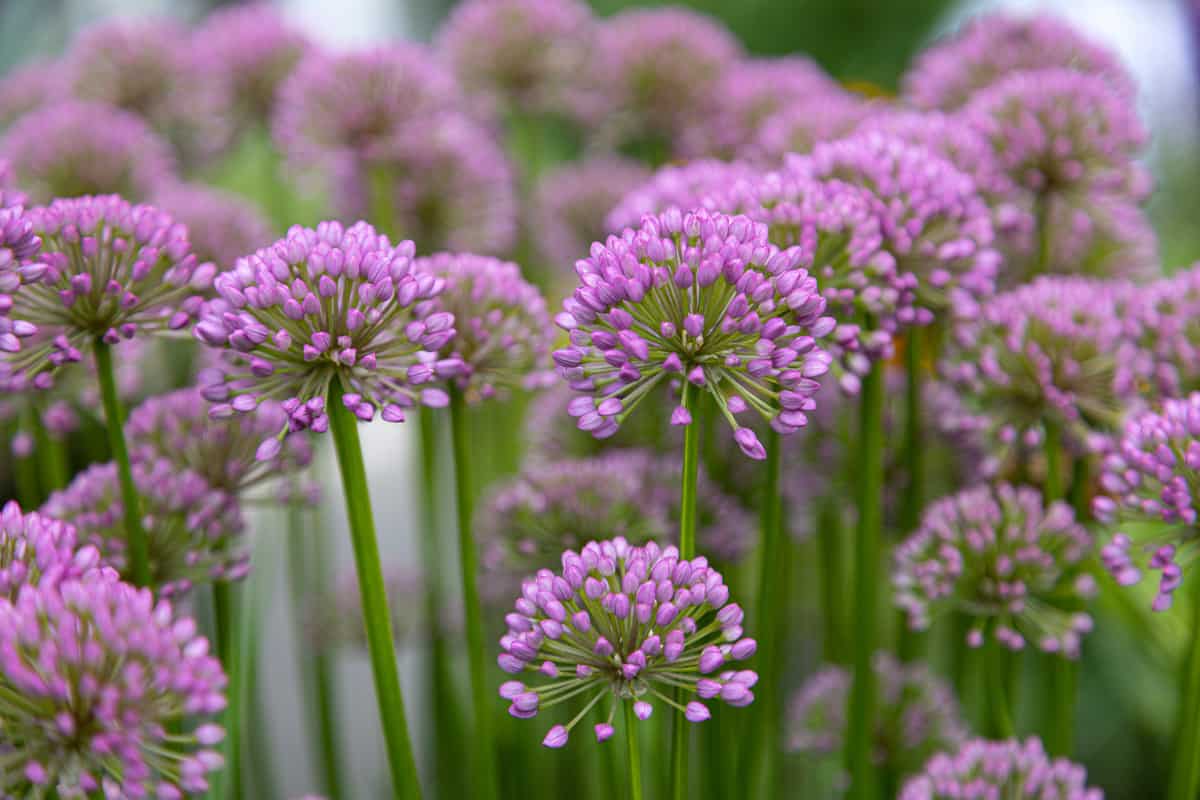
One of the main culprits in eating alliums is leaf miners. Considering that these critters target garlic, onions, shallots, chives, and leeks, it's no surprise they love snacking on your allium.
Onto larger pests, it's common for elk, black bears, and prairie dogs to start eating your alliums leaves and bulbs if they get hungry and run out of options.
As we said, you might also notice much smaller holes on your plant's leaves, which could be because of flies, although it's more likely leaf miners.
![A beautiful Allium flower in the field, What Is Eating My Allium Leaves [And How To Prevent It]?](https://gardentabs.com/wp-content/uploads/2022/08/75.-What-Is-Eating-My-Allium-Leaves-And-How-To-Prevent-It1.jpg)
Again, it isn't always easy to target exactly what creature is causing the devastation in your garden, so this could take some trial and error.
You also want to ensure the other non-allium species growing nearby aren't being eaten either, or you could be dealing with an entire invasion.
One of the most common mistakes gardeners make when treating pests is forgetting to cover their entire yard, essentially inviting the pests to move to nearby locations.
What Are Leaf Miners? Are They Invasive?
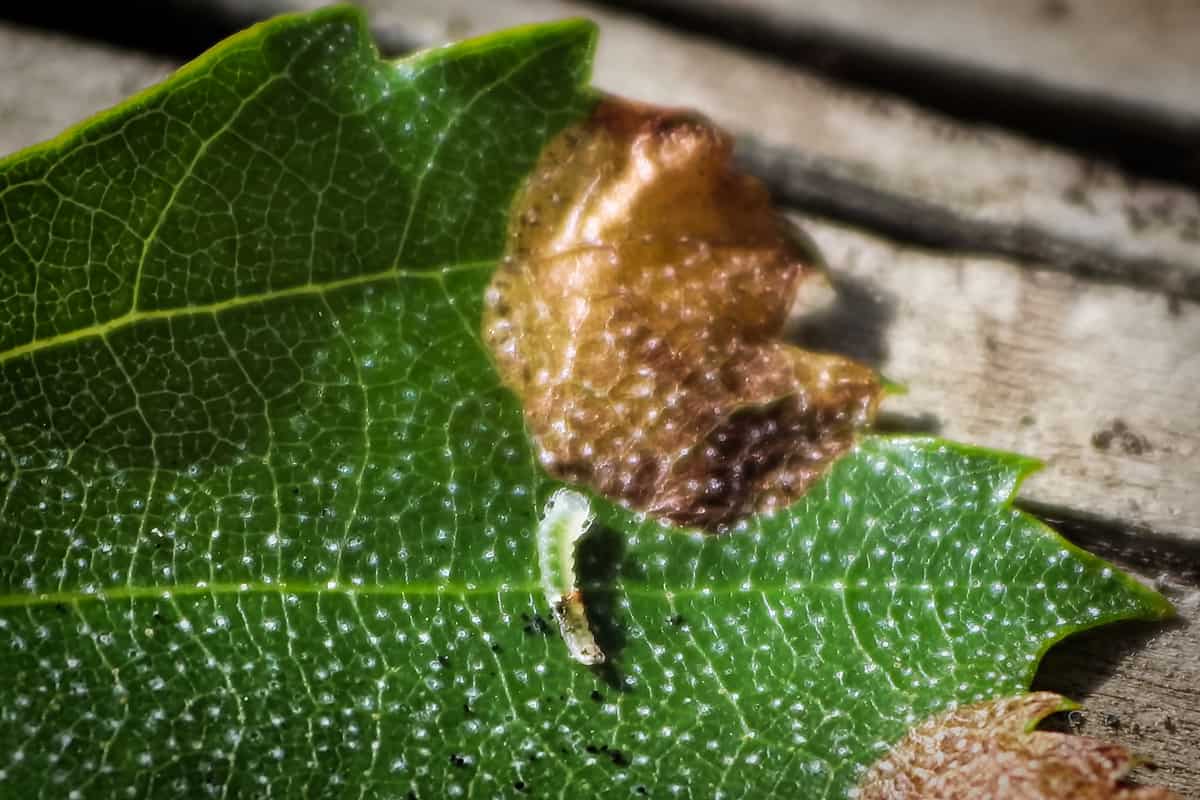
Although many critters fall into the "leaf miner" category, their definition is an insect 'in which the larval stage lives in, and eats, the leaf tissue of plants.'
That means that if an insect can produce larvae on the bottom of the leaves of a plant, it will likely show leaf mining behavior. You will also notice "tunneling" under and on the foliage of your plant(s), so this is pretty easy to spot.
Moths, sawflies, and flies typically fall into leaf mining tendencies, although some beetles will also fit the bill. Therefore, you're not usually looking for a single culprit, but many exhibiting the same damaging behavior.
You can also expect leaf miners to be invasive. Whether they show up in your yard by accident or migrate, it's likely to notice signs of damage relatively fast.
Considering their larvae will be on the underside of your plant's leaves, it shouldn't be too difficult to spot which areas of your garden are being targeted.
Again, there could also be larger rodents burrowing under your entire allium, and that's what is causing the problem, but if you see minor damage or bite marks on leaves, it's more likely an insect.
What Does Leaf Miner Damage Look Like?
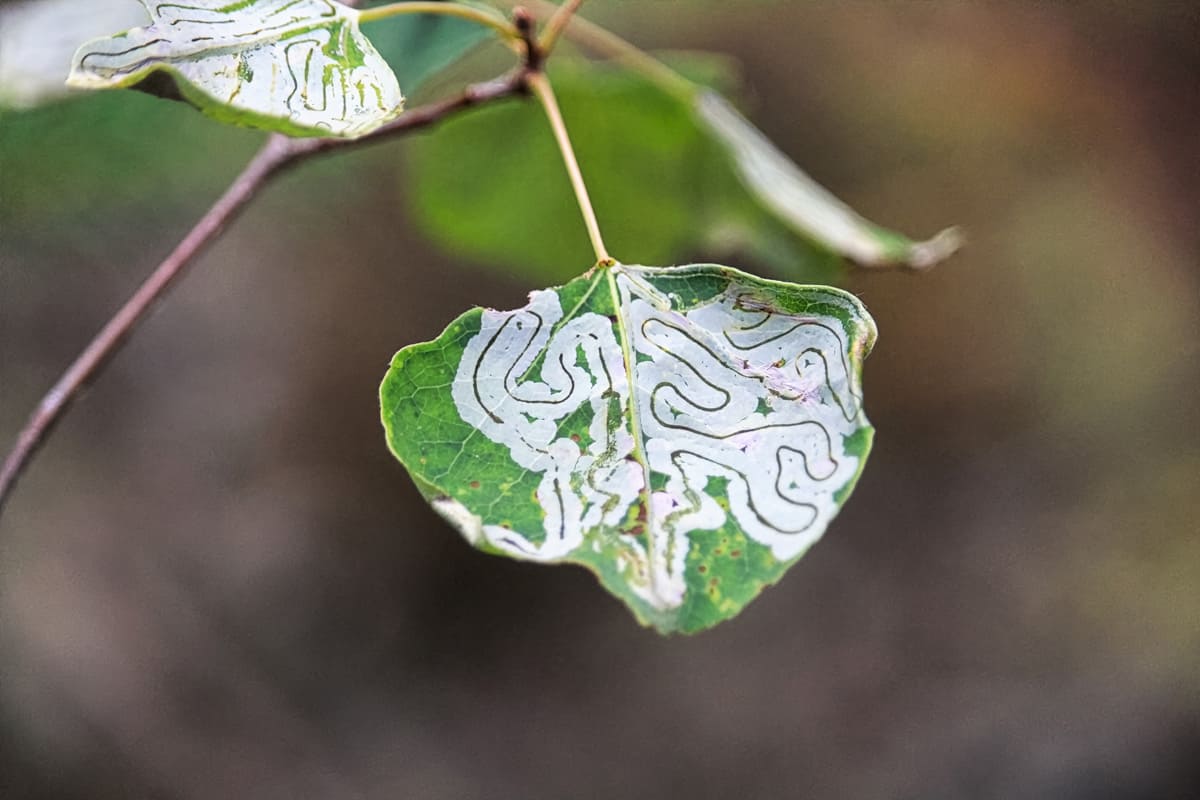
For those suspecting their allium has leaf miners, there are some specific signs to look for. Generally, a plant with leaf miners will develop squiggly trails along the underside of its leaves.
In addition, your allium (or other plants) will lose color in large spots throughout its foliage. You might see these appear as spots of white or yellowing.
As we said earlier, it's easy to tell if leaf miners are present by looking under your allium's leaves. If there are larvae present, you've found the culprit.
However, seeing the larvae isn't always so easy. For example, many leaf-mining species larvae live in the leaf, between the outer skin layers, which can be difficult to spot.
One of the origins of leaf miners' name is they create almost tunnel-like marks on plants. Moreover, these pests will sometimes get inside the leaf they choose to lay their larvae on, hence the mining aspect.
So, if you see any of these irregularities on your allium, make sure to create a plan (fast).
How Should I Treat An Allium With Leaf Miners?
A chemical insecticide is one of the most effective ways to eliminate leaf miners on an allium. Of course, chemicals aren't always our first suggestion, but in times like these, we give you permission.
A few effective synthetic leaf miner insecticides include abamectin, imidacloprid, and cyfluthrin, which you can find in-store and online at most major retailers.
Once you have your leaf miner killer, you want to apply it to your entire allium. Even if you don't see miners in specific plant sections, it's better to be safe than sorry.
Typically, leaf miners won't return to a plant you treat with chemicals they can't tolerate, hence why fuller coverage is the best route.
You also want to apply your product as soon as you notice leaf miners present. The longer you wait, the more leaves your plant will lose, so this is imperative.
If you're too late on some of the sections of your allium, it might be best to prune them off entirely.
For example, if a section of your allium has tunneling and discoloration on its foliage, cutting back those affected areas can be beneficial.
Bonide BND250 Ready To Use Insecticide/Pesticide
This insecticide targets leaf miners, works for all types of plants, is made primarily with an organic material called 'Spinosad,' comes ready to use, and will be in a 32-ounce container.
Check out this product on Amazon here.
What Animals Eat Alliums?
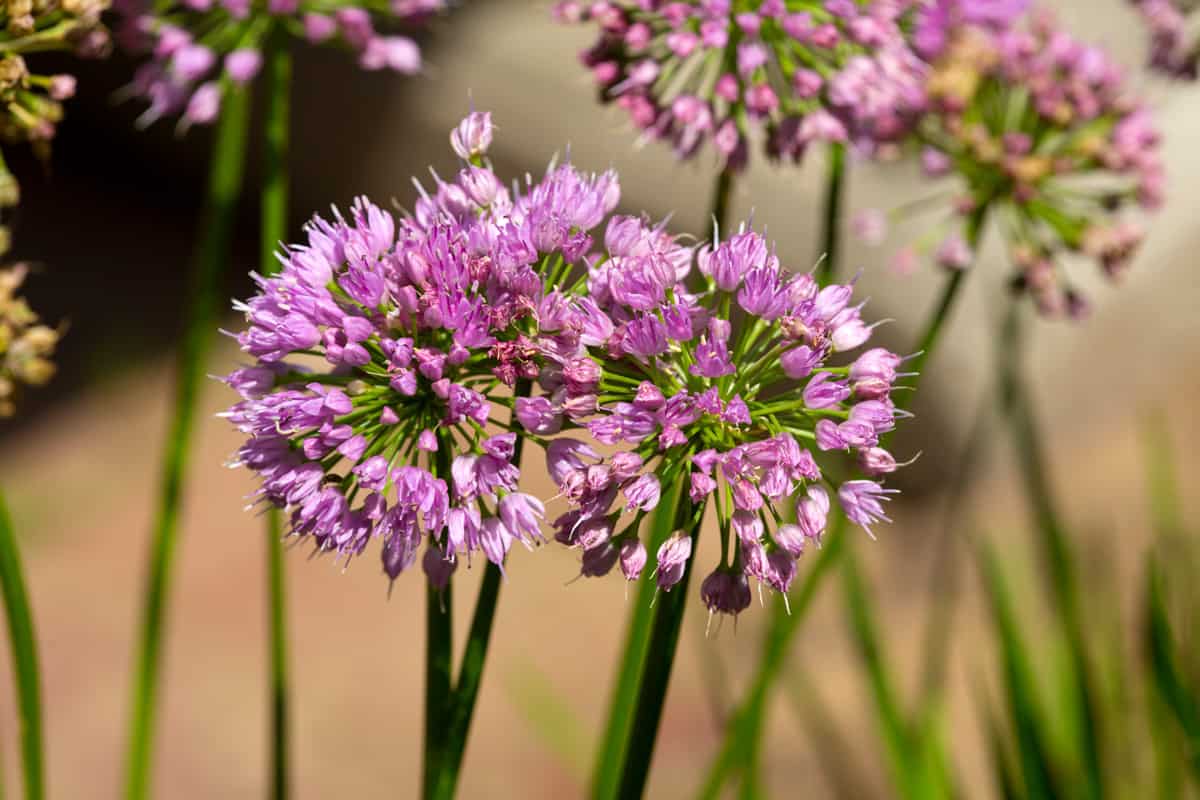
Considering alliums tend to be fragrant, it's not uncommon for larger animals to take a liking to them. Generally, elk, black bears, and prairie dogs will take a bite out of your alliums if they're easy to get to, so this can become an issue.
As we said, alliums have a strong smell and fall into the wild onion family, which is the perfect meal for many small and large critters.
On the other hand, alliums fall into the onion, garlic, and chive family means they naturally repel squirrels and rabbits, so they aren't completely useless.
If you notice large chunks of your plant being eaten, you can switch focus from leaf miners to a potential bear or elk. It could be worth putting up fencing around the area or your garden to remedy the situation.
Remember, even though your home is yours, that doesn't mean nature won't let itself in to hang out.
Animals don't know what property lines are, so if your alliums are easy to get to, expect some mid-afternoon to late-night snackers.
Do Rodents Eat Alliums?
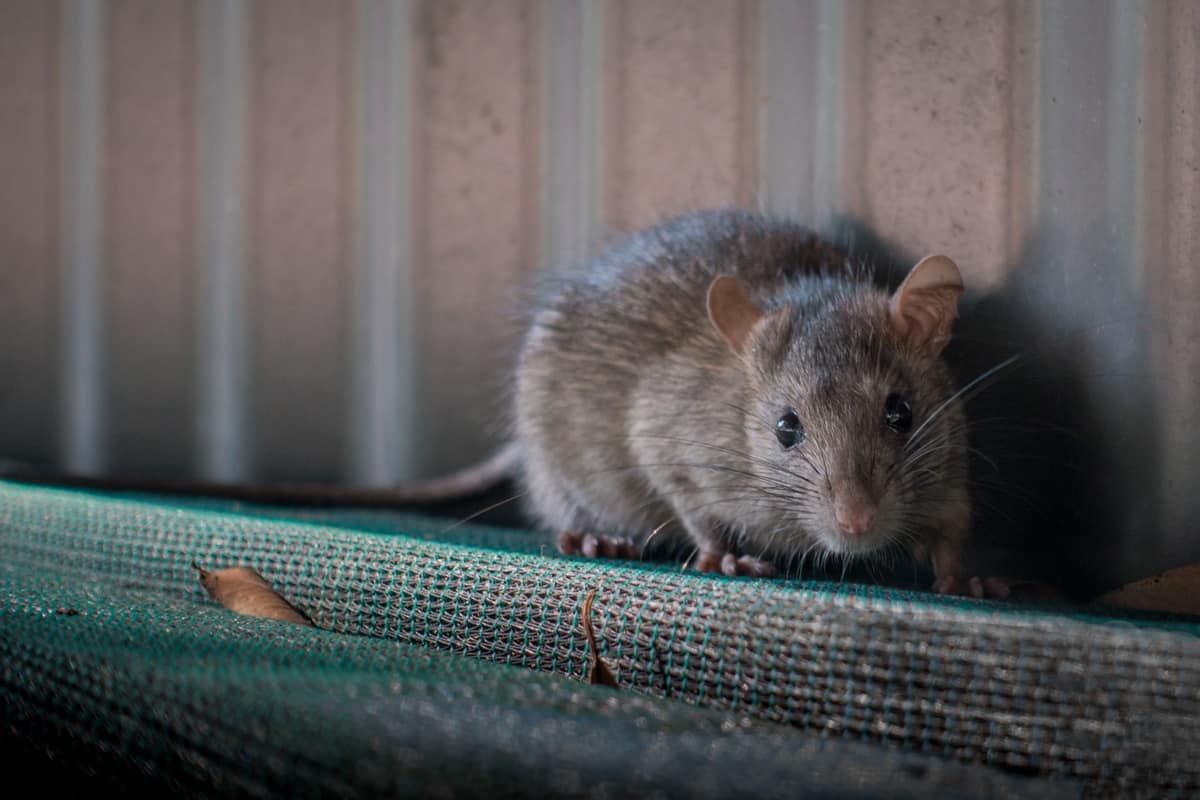
No, usually, rodents will steer clear of your alliums. Although some mice may hang out near allium plants, they won't typically enjoy the taste of its bulbs or leaves.
As we said above, the pungent aroma from this species tends to repel squirrels and rabbits, as well as chipmunks and voles.
However, that's not to say you won't ever see these creatures burrow or hang around near your alliums. Remember, there might be smaller insects on or around your plant, which these rodents will eat.
So, not only will leaf miners try and destroy your plant, their predators could end up doubling down.
If you notice anything suspicious happening near your alliums, you should take some measures. First, we recommend laying down crushed stone or oyster shells, which deter rodents from making their way onto your alliums.
Furthermore, it might be worth it to create a barrier around your alliums using mesh or wire fencing.
The key here is creating obstacles for potential feeders. Unlike leaf miners, rodents aren't as easy to see or catch in real-time, so you'll need to do some preventative measures.
Do Alliums Get Diseases Easily?
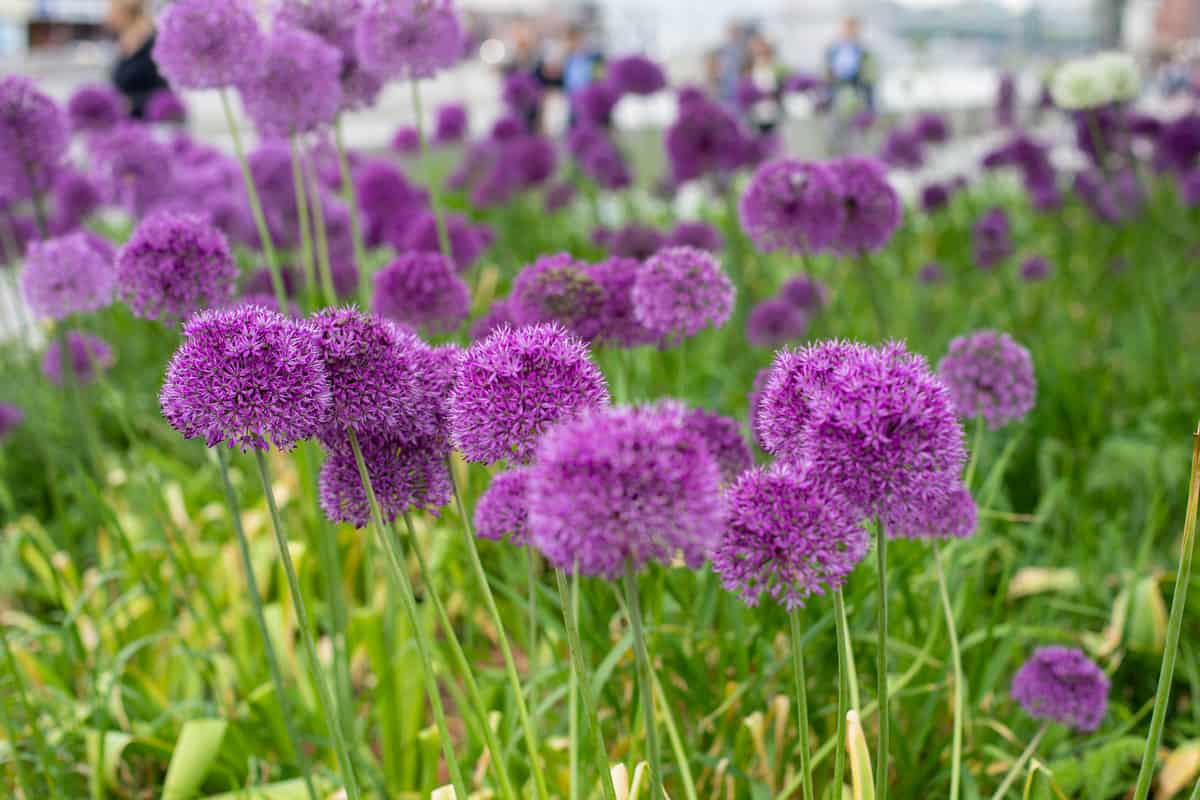
In general, it's not too common for alliums to develop diseases or get sick. With that said, a fungus can develop on your plant and cause it to become ill or even die.
One of the most common diseases alliums run into is 'white rot,' which is when a fungus called Sclerotium cepivorum rapidly spreads across your allium, making it change color.
Unfortunately, these fungal spores affect many onion and garlic plants, including alliums.
However, it's more common for this to develop widescale, meaning you'd need to grow large amounts of alliums for a major disease to flourish.
Are Alliums Easy To Grow And Care For?
Yes, you will usually have an easy time growing and maintaining alliums. Considering this plant species is on the hardier side, your alliums will be able to handle weather/climate changes, water fluctuations, and seasonal abnormalities.
The key to growing healthy alliums is giving them plenty of sun and well-draining soil. One of the most common mistakes gardeners make with these plants is keeping their soil damp, which increases the chances of a fungal disease.
To Finish
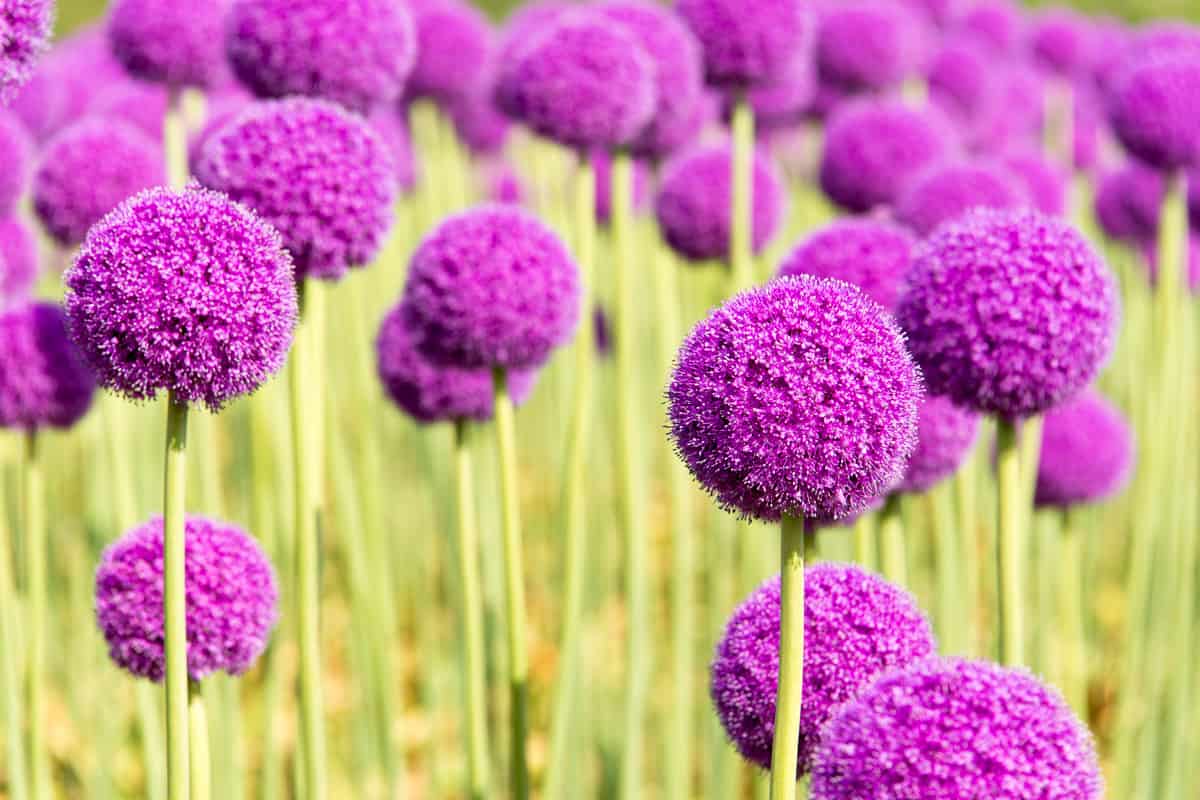
Whether you have alliums growing in your yard or want to plant a few, it's always good to know how to take care of them. We found that alliums have many critters/animals that are attracted to them.
When it comes to eating leaves, leaf miners are the top culprit to watch for. However, you may notice larger animals like bears and elk take bites of your plant if it's easily accessible.
To manage these unwanted feeders, we recommend using a targeted insecticide (for pest-related leaf damage) or creating a physical barrier around your alliums (for larger animals).
Want to read more? Check out these helpful articles!


![What Is Eating My Allium Leaves [And How To Prevent It]?](https://gardentabs.com/wp-content/uploads/2022/08/3.40.-What-Is-Eating-My-Allium-Leaves-And-How-To-Prevent-It-1-683x1024.png)
![What Is Eating My Allium Leaves [And How To Prevent It]?](https://gardentabs.com/wp-content/uploads/2022/08/4.40.-What-Is-Eating-My-Allium-Leaves-And-How-To-Prevent-It-1-683x1024.png)
![What Is Eating My Allium Leaves [And How To Prevent It]?](https://gardentabs.com/wp-content/uploads/2022/08/5.40.-What-Is-Eating-My-Allium-Leaves-And-How-To-Prevent-It-1-683x1024.png)
![What Is Eating My Allium Leaves [And How To Prevent It]?](https://gardentabs.com/wp-content/uploads/2022/08/2.40.-What-Is-Eating-My-Allium-Leaves-And-How-To-Prevent-It-1-683x1024.png)